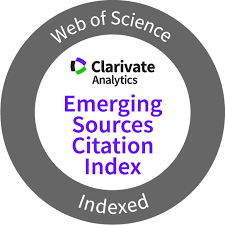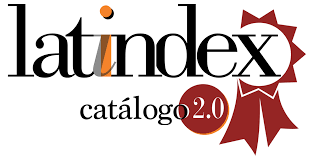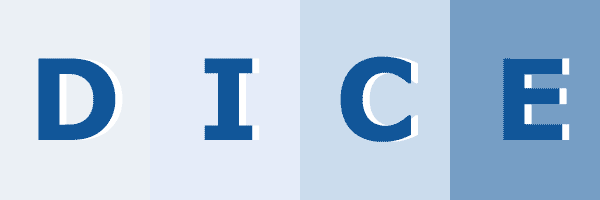A privatização da ética no Brasil: posicionamento da Petrobrás no canal do Youtube / The ethic’s privatization in Brazil: positioning of Petrobrás in the Youtube channel
DOI:
https://doi.org/10.5783/revrrpp.v8i16.533Keywords:
ética, Petrobrás, tecnologias digitais de comunicação e informação, capital social, relações públicasAbstract
RESUMO
Neste artigo investiga-se os produtos de comunicação com conteúdo relacionado à ética, nas tecnologias digitais de comunicação e informação, centralizadas no canal do Youtube da estatal petrolífera brasileira Petrobrás, após as denúncias de desvio de dinheiro público comprovadas pela Polícia Federal por meio da operação intitulada “Lava Jato”. Buscou-se analisar os tipos de conexão gerados a partir deste conteúdo: associativos ou emergentes (RECUERO, 2012). A situação problemática reside em como as empresas lidam com a questão da ética na pós-modernidade, principalmente quando existem casos de corrupção comprovada e necessitam recuperar a confiança da opinião pública. Presume-se que estas empresas têm começado um movimento de privatização da ética, lançando departamentos de conduta ética para provar integridade, principalmente, frente à opinião pública, bem como utilizando discursos enviesados, como demonstrado na análise de conteúdo em quatro vídeos disponibilizados pela Petrobrás em seu canal do Youtube. Para a fundamentação teórica, conceitos como pós-modernidade, informação pública, relações públicas, ética e capital social são abordados.
Palavras chave: ética; Petrobrás; tecnologias digitais de comunicação e informação; capital social; relações públicas.
ABSTRACT
This article investigates the construction of content related to ethics, in digital technologies of communication and information, centralized in the Youtube channel of the Brazilian state-owned oil company Petrobrás, after the denunciations of public money diversion verified by the Federal Police through the operation titled " Car wash". We attempted to analyze the types of connections generated from this content: associative or emergent (RECUERO, 2012). The problematic situation lies in how companies deal with the issue of ethics in postmodernity, especially when there are cases of proven corruption and need to restore public confidence. It is presumed that these companies have begun a privatization movement of ethics, launching departments of ethical conduct to prove integrity, especially in the face of public opinion, as well as using biased speeches, as demonstrated in the content analysis in four videos made available by Petrobrás in your Youtube channel. For the theoretical foundation, concepts such as postmodernity, public information, public relations, ethics and social capital are approached
Keywords :ethics; Petrobrás; digital technologies of information and communication; social capital; public relations.
Downloads
References
BARDIN, L. (1997) Análise de Conteúdo. Lisboa: Geográfica.
BAUMAN, Z. (1997). Ética pós-moderna. Tradução João Rezende Costa. São Paulo: Paulus.
COLEMAN, J. S. (1988) Social capital in the creation of human capital. The American Journal of Sociology, Vol. 94, Supplement: Organizationsand Institutions: Sociological and Economic Approaches to the Analysis of Social Structure, p. S95-S120. Acesso em 28 de jan de 2018. Disponível emhttp://www.jstor.org/stable/2780243
GONÇALVES, G. (2010). Introdução à teoria das relações públicas. Porto: Porto Editora.
GONÇALVES, G. (2007). Ética das relações públicas. A falta de responsabilidade social nos Códigos Éticos de Relações Públicas. In: IX Congresso da International Association for Media and Communication Research (IAMCR). Paris. Artigos, 2- 26.
GONÇALVES, G. (2015). Teorias de relações públicas – da visão sistêmica à visão radical. In: SPÍNOLA, S.; BRANDÃO, N. PORTUGAL, M. N. (coord.). Relações públicas e comunicação organizacional: desafios da globalização. Lisboa: Escolar,67-86.
GRUNIG e HUNT. (1984). Managing Public Relations. Holt, Rinehartand Winston.
LIPOVETSKY, G. e CHARLES, S. (2004). Os Tempos Hipermodernos. São Paulo: Barcarolla.
LEVINSON, P. (2013). New new media. Nova York: Penguin.
MARINHO, C. M. (2008). Ética e pós modernidade. Kairós - Revista Acadêmica da Prainha, 1, 187 – 202.
MATOS, H. (2011). A comunicação pública na perspectiva da teoria do reconhecimento. In: KUNSCH, M. M. K. (org.). Comunicação pública, sociedade e cidadania. São Caetano do Sul: Difusão.
MORIN, E. (2017). O método 6: ética. Porto Alegre: Sulina.
RECUERO, R. (2012). O capital social em rede: como as redes sociais na internet estão gerando novas formas de capital social. Revista Contemporânea Comunicação e Cultura, vol.10, nº 3, 597 – 617.
Downloads
Published
How to Cite
Issue
Section
License
Authors publishing in this journal agree to the following terms:
a. Authors retain copyright and grant the journal the right to be the first publication of the work as licensed under a Creative Commons Attribution License that allows others to share the work with an acknowledgement of authorship of the work and initial publication in this journal.
b. Authors may separately enter into additional arrangements for non-exclusive distribution of the version of the work published in the journal (e.g., placing it in an institutional repository or publishing it in a book), with an acknowledgement of initial publication in this journal.
c. Authors are allowed and encouraged to disseminate their work electronically (e.g. in institutional repositories or on their own website) before and during the submission process, as it can lead to productive exchanges, as well as earlier and higher citation of published work (see The Effect of Open Access).




